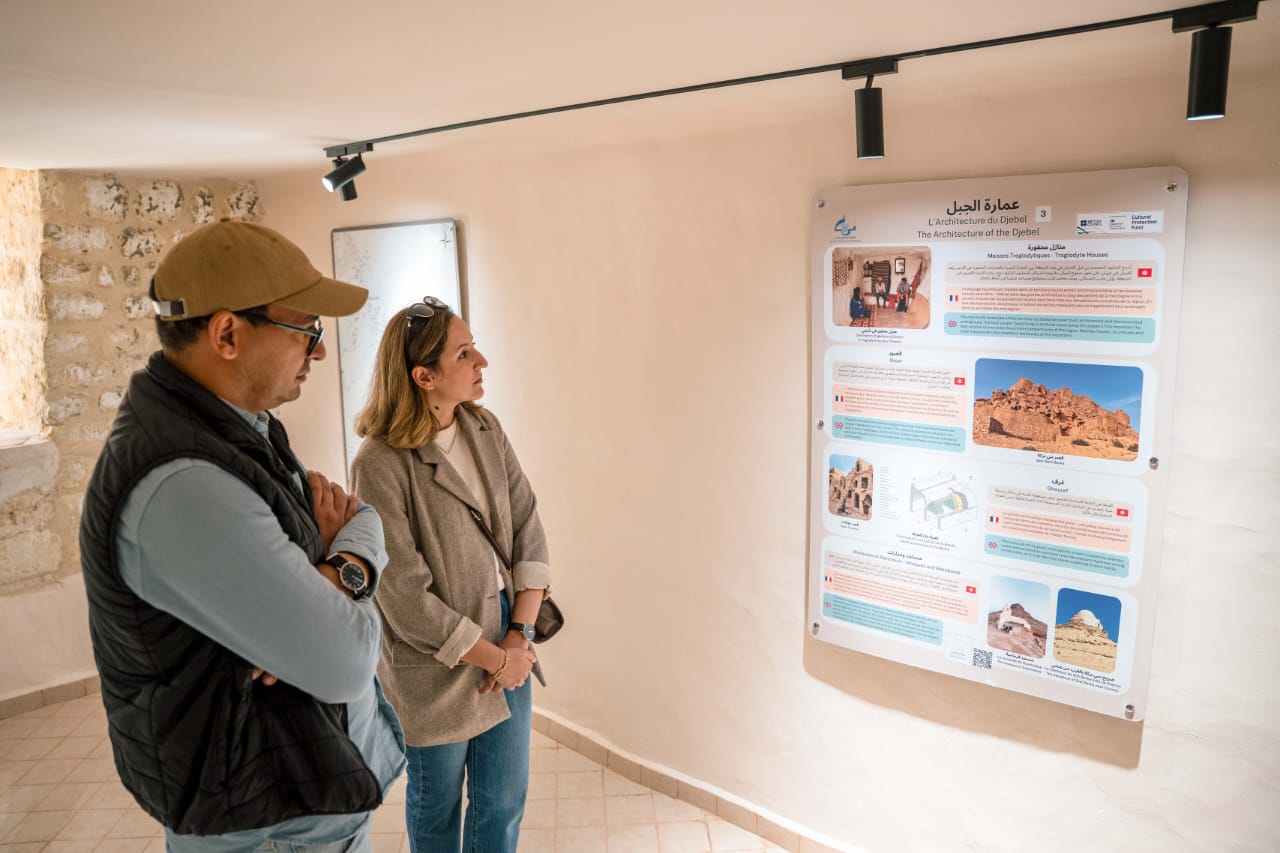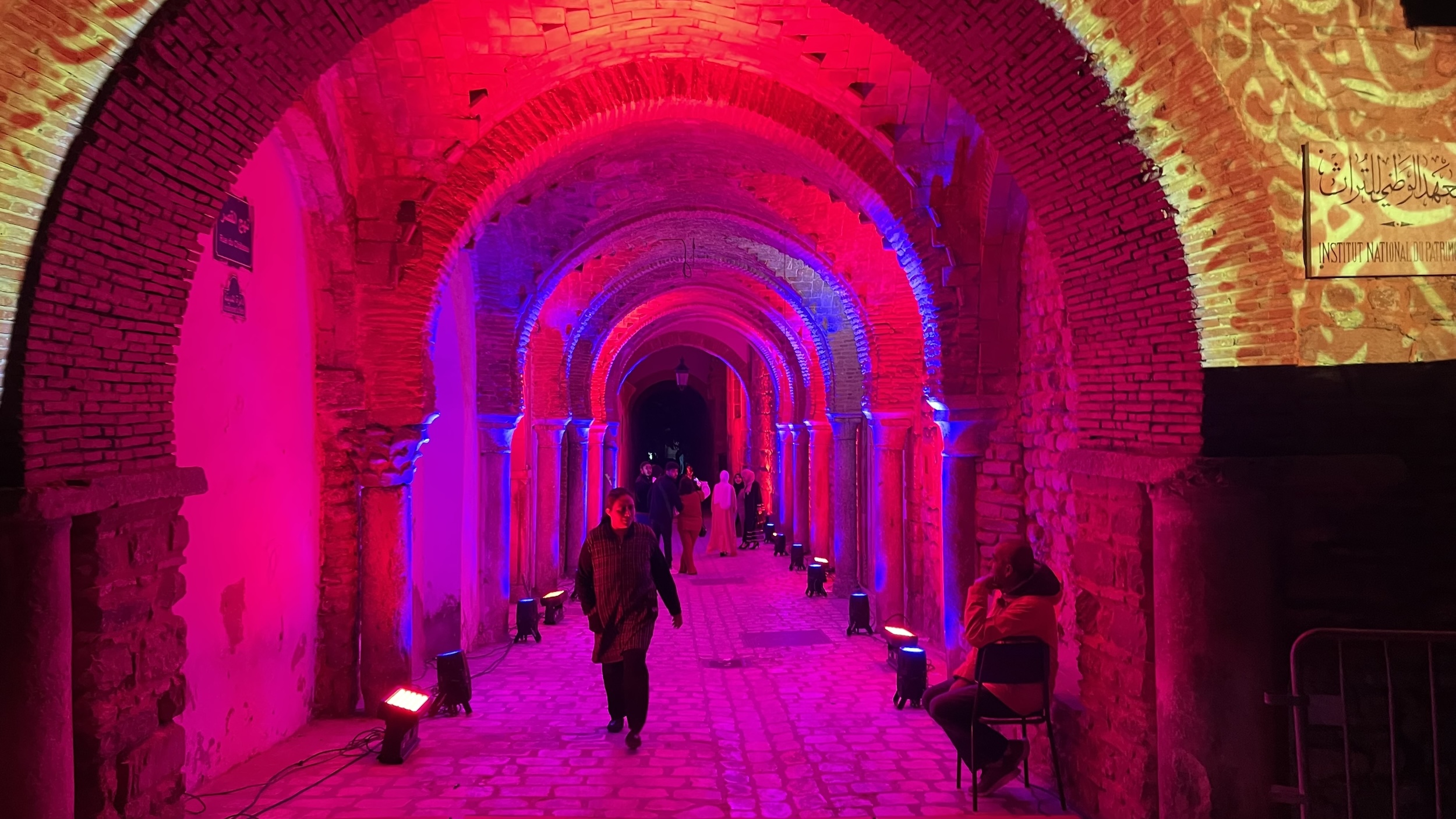A new interactive centre celebrating Tunisia’s southern heritage and centuries-old climate adaptation techniques was officially inaugurated in Chenini, Tataouine. The opening ceremony was led by British Ambassador to Tunisia, Roderick Drummond, and British Council Country Director, Jill Coates, in close collaboration with Tunisia’s National Institute of Heritage.
The Centre for the Promotion of Heritage in Tataouine marks a transformative moment for the region. Once an abandoned granary complex, the site has been turned into a vibrant cultural and economic hub that honours traditional knowledge while fostering future opportunities. This initiative is part of a wider UK-Tunisia partnership to protect and promote cultural heritage, with Durham University and the National Institute of Heritage working alongside local residents to restore the site and showcase sustainable building and water management techniques rooted in centuries of indigenous practice
By blending traditions with modern conservation methods, the project demonstrates how cultural heritage can be a driver of sustainable development and social cohesion.

Funded by the Cultural Protection Fund, led by British Council in partnership with of the UK's Department Culture for Media and Sport, this project is part of the UK Government's Official Development Assistance (ODA) programme, reflecting the UK Government’s commitment to safeguarding heritage at risk from climate change and conflict. It also contributes to long-term social stability and economic resilience.
The centre places a strong focus on women’s empowerment and youth engagement, featuring women-led craft shops, a community-run café, and a co-working space with internet access for young people. These facilities aim to generate employment in the cultural, tourism and creative sectors, while equipping local artisans with tools to preserve and evolve traditional crafts.
_1.jpeg)
In addition, the initiative has trained local archaeologists, architects and conservators in heritage preservation techniques, ensuring that the skills to maintain and protect the site remain within the community.
Speaking at the opening, Ambassador Roderick Drummond said:
The project represents the power of heritage to connect people and create opportunity. The Centre in Chenini is more than a cultural landmark; it is a living example of community resilience and partnership. It brings together Tunisia’s heritage, women’s creativity, and sustainable tourism, showing how local action can make a global impact.”
Commenting about the importance of the project, Jill Coates, British Council Country Director in Tunisia said:
It is a proud moment to see the opening of Tunisia’s first interactive digital centre, a space that celebrates the country’s heritage while empowering local communities to shape their future. With support from our Cultural Protection Fund, the Centre in Chenini is not only preserving the past but creating new pathways for education, creativity and opportunity. As global leaders prepare to gather for COP30, it stands as an example of how traditional knowledge and community-led action can support climate adaptation and sustainable development

